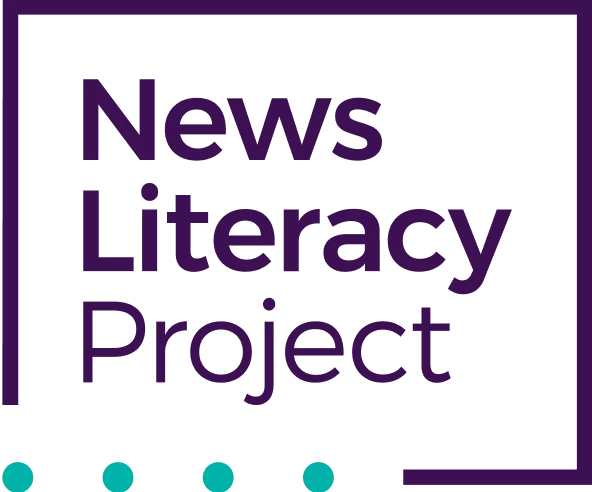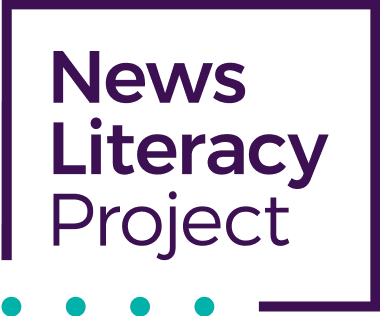
- This event has passed.
PitchIt! New York Student Essay Contest

Contest Deadline: April 19, 2024, 11:59 p.m. EST.
TIMELINE:
- Nov. 1, 2023 – Feb. 13: Educator RSVP is open! Suggested time frame to teach using Checkology® virtual classroom and other free NLP resources.
- Feb. 14 – March 13: Suggested time frame to teach using NLP resources or workshop essays for early submission.
- March 14 – April 18: Suggested time frame to using NLP resources or workshop essays for regular essay submission period.
- April 19: Essay submission deadline, 11:59 p.m. EST.
ABOUT
Student voice is a catalyst for positive change in schools and communities. For this reason, the News Literacy Project is hosting a writing contest to empower New York students to be civically informed and engaged.
The PitchIt! New York student essay contest is an opportunity for students to write about some of the most important topics of our time and explore how they can help combat misinformation or work to protect freedom of the press.
TEACHING AND LEARNING GOALS
- Teachers have an authentic and engaging writing assignment that amplifies student voices and explores issues aligned to district curricula, standards and required topics, such as the First Amendment.
- Students analyze different types of misinformation and show the ability to think critically about what is and is not verifiable information.
- Students apply their news and media literacy skills to solve the misinformation problem.
- This project challenges students to develop their 21st century civics and media literacy skills.
AWARDS
The below are given to students for each grade band in 6-8 and 9-12.
GRAND PRIZE – PITCH:
$200 gift card scholarship and school banner
FIRST PLACE – ESSAY
$150 gift card scholarship
SECOND PLACE – ESSAY
$100 gift card scholarship
THIRD PLACE – ESSAY
$50 gift card scholarship
Note: First-, second- and third place essay winners will prepare a presentation to “pitch” in the virtual PitchIt! Grand Prize event on Zoom (date TBA) and receive feedback from working journalists. The Grand Prize winners will be chosen at this time.
OVERVIEW
This contest is open to middle and high school students in New York State who participate with the support from a teacher and/or school. Participating teachers may choose to adapt the competition curriculum for individual classes or hold a schoolwide event. Each participating school may submit up to five entries per grade (6-12).
Educators are provided with free resources, as well as planning and organizational support for instructional purposes in the PitchIt! Student Essay Contest folder on NLP’s Google Drive. Join the NewsLitNation Facebook Group, for additional tips on how to best blend key news literacy concepts into your existing curriculum.
For this project, students will write a 500- to 1,000-word essay in response to one of the news literacy writing prompts, using a news article as inspiration. Submitted essays will be judged by NLP ambassadors.
The selected first- through third-place essay contest prize winners (three from middle school and three from high school) then compete at the virtual PitchIt! Grand Prize event, where they receive real-time feedback from journalists on their “pitch,” a presentation about their essay topic. The grand prize winners will be chosen at this time.
LEARNING TASK AND CHOOSING THE ESSAY TOPIC
News literacy is the ability to determine the credibility of news and other content to identify different types of information and to use the standards of fact-based journalism to determine what to trust, share and act on. Being news literate also means recognizing the critical role of the First Amendment and a free press in a democracy and interacting with news and information in ways that promote engaged participation in civic life.
OBJECTIVE
Students will be able to develop critical thinking and news literacy skills to find reliable information to make decisions, take action and responsibly share news through social media.
TASK
Students compose an essay in response to one of the news literacy writing prompts below, discussing how it relates to a local, national or international news article of their choice. They should form a thesis based on their chosen prompt and aim to convince their audience that the thesis is accurate and valid.
SUMMATIVE ASSESSMENT
Students will be evaluated using the PitchIt! rubric found among the PitchIt! Student Essay Contest documents in Google Drive. Teachers should provide students with a written copy of the rubric and relevant supporting materials.
PROCESS
Step 1. Teacher introduces the writing assignment to their class, the rubric* and the process by which the top essays will advance. News literacy topics are explored with students as they relate to the curriculum. Teachers are encouraged to use the free educator resources on NewsLitNation® or the Checkology® virtual classroom on topics like the First Amendment. See resources from the New York Public Library, which includes access to The New York Times, or any other available news sources.
Step 2. Students work with their teacher to select a news article/topic of their choice and select one of the prompts below to follow in writing the essay. Encourage students to use the essay planning document* as an outline before handing in a final draft.
Step 3. Teachers select up to five student essays per grade, per school, and submit with cover letter via email to Alesha Smith, New York’s NewsLitNation ambassador: Aleshasmith292@gmail.com.
Step 4. NLP’s educator panel selects six essays (three from middle school and three from high school) to advance to the Grand Prize phase of the contest (the “pitch”!).
Step 5. Panel notifies the teacher by May 6, 2024. The selected students then begin creating a visual presentation of their essay (PowerPoint or Google Slides) no more than three minutes in length, to compete in the final phase of the contest.
Step 6: First-, second- and third-place essay winners make their three-minute presentation (“pitch”) to a panel of journalists during the PitchIt! New York Grand Prize event on Zoom and receive personalized feedback. Panelists choose the Grand Prize winners for middle school and high school competitors, who will be awarded during the event.
*Click here for the Google Drive folder with PitchIt! educator resources.
PROMPTS
Students should pick one of the following prompts:
Prompt #1: Explain how the First Amendment protects freedom of the press. Use a recent local, national or international news story to illustrate the importance of freedom of the press and how other freedoms are required to protect it.
Prompt #2: What steps should someone take to fact-check statements by a public figure? Consider a recent event in the news to analyze the ways in which the press can hold public figures accountable for what they say and share publicly.
Prompt #3: People have civic responsibilities, things they should do but are not required by law. Explain which news literacy skills are essential to responsible civic participation by example of a recent event in the news.
Prompt #4: Social media platforms are under increased public pressure to fact-check online content generated and shared by users. Which news literacy standards should social media platforms adopt to evaluate fact from fiction? Support your answer with real-world examples in the news media.
Prompt #5: What is the role of the media in our society, and how can we become responsible consumers and producers of news and information in the digital age? Support your answer with real-world examples in the news.
Prompt #6: How does confirmation bias, stereotyping and other cognitive biases impact how we interpret events, news and information? What are potential consequences of not verifying the accuracy of such information? Analyze a current news event with these multiple issues in mind for your essay.
ESSAY CRITERIA
- Submission must be original, unpublished work of one student.
- Essay is between 500-1,000 words, clearly addressing one of the prompts.
- Essay is typed in 12-point, Times New Roman, double-spaced with 1” margins and numbered pages.
- Submissions must have a title.
- Students must include at least three credible sources to support their thesis.
- Essays must use MLA formatting, complete with in-text citations and a Works Cited page (not included in the word count). See Purdue Owl MLA Guide.
- Essays must be proofread and should follow the rules for standard English (grammar, punctuation, mechanics) in writing. See Purdue Owl Grammar.
- Plagiarism: any submission that is in part or wholly plagiarized will be disqualified from the PitchIt! competition. See Purdue Owl Plagiarism.
- A cover page MUST be included with the following information: title of essay, student name, grade level, student’s complete mailing address, student’s email address, school’s name, principal’s name, teacher’s name, and best phone number and email address for the teacher.
- Finalists must be able to virtually participate in the PitchIt! New York Grand Prize event at the end of May 2024.
SUBMISSION:
Schools/teachers should submit their top five winning essays per grade with required cover letter to: Alesha Smith, NLP’s New York NewsLitNation ambassador, at aleshasmith292@gmail.com. Entries must be received by April 19, 2024.
While not required, we encourage schools to conduct their own internal essay contest to establish the top essays for submission.
FAQs:
Is there a submission fee? No fees! Better yet, there is no catch. All our educator resources are free, including Checkology!
What does “teacher support” mean? Successful writers are made through direct instruction. Teachers are encouraged to support students in both content and the writing process. The teacher’s name and contact information must also be indicated in the cover letter as the primary point of contact regarding the entry.
How are the essays judged? During the first phase of the contest, essays are reviewed by news literacy ambassadors for readability, accuracy and originality, using the PitchIt! Rubric. Successful essays are about a local, national or international story tied in with the student’s knowledge of news literacy concepts. For example, using one of the prompts, consider the impact a story had, and whether false claims about it could be debunked using reputable and verifiable sources of information.
Do you have essay tips for the students? Essays must have a recognizable beginning (opening or introduction), multiple body paragraphs and a conclusion. See Purdue Owl Argumentative Essays. Hook the reader with a strong opener. Readers will use the first few sentences to decide whether they will read the whole essay. Keep your paragraphs short. Popular essays tend to average three sentences per paragraph. Submit thoroughly thought-out, tightly focused essays. Originality is also important. In the conclusion, include a call to action. Encourage readers to take some positive steps. For instance, if you’ve given them a list of tips, prompt them to put some of the tips into practice.
How is the “pitch” judged? The first-, second- and third-place essay winners advance to the Grand Prize event phase of the contest. To prepare, they must create a visual presentation based on their essay theme (PowerPoint or Google Slides). During the event they will each have three minutes to “pitch” their essay idea to a panel of journalists and will receive real-time feedback. Students’ presentations will be judged for creativity, delivery, impact and accuracy during the PitchIt! New York Grand Prize event, end of May, 2024.
Who can participate? The PitchIt! contest is open to all middle and high school students in New York State. If you live in Colorado, Pennsylvania or Florida, please visit the main PitchIt! page for details.
What document formats are accepted? Please submit the essay as a Docx, Word document, PDF file or Google Doc.
How are the finalists announced? Email notifications will be sent to teachers by May 6, 2024.
I have more questions! Questions about NLP resources can be directed to Terry Berna, educator success manager, tberna@newslit.org, or you can submit a request via the NLP Education Help Center or the NewsLitNation Facebook Group. Questions about rules can be directed to Miriam Romais, director of NewsLitNation, at network@newslit.org, and questions about entries can be directed to our New York ambassador, Alesha Smith, Aleshasmith292@gmail.com.
“I once read that the belief in misinformation can result in adverse physical and psychological consequences. Our learning goals for this contest are for students to learn how to hone their skills in identifying, researching, analyzing and synthesizing information from credible sources that can be verified; this is an essential trait of news literacy. Guiding students to be successful in news literacy equips our scholars with the ability to analyze any issue through a more critical lens, which encourages higher-level thinking in their current roles as students and beyond. This expertise will be impactful in their daily academic and practical lives. For the stated reasons, we are hopeful that teachers and students from across the district and state will participate in this unique opportunity.”
—Alesha Smith, ELA lead teacher-coach/ social studies teacher, NYC DOE
“Participating in PitchIt! NYC was a great experience for me! I enjoyed the combination of essay writing and the oral pitching components in the competition. I am very grateful that I was given the opportunity to participate in the contest and compete as a finalist—I would definitely recommend this contest to my fellow students!”
-Patricia, winning essay student


